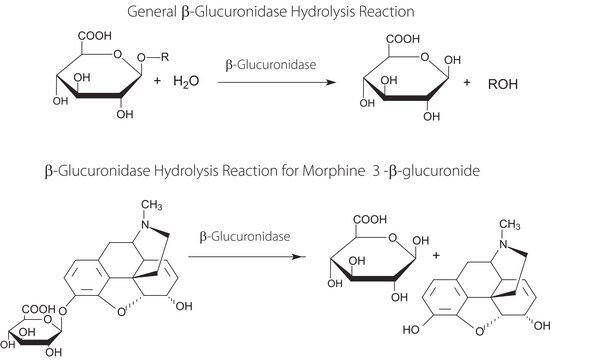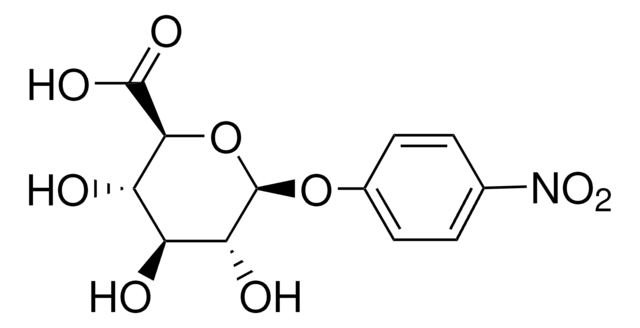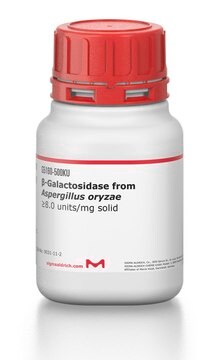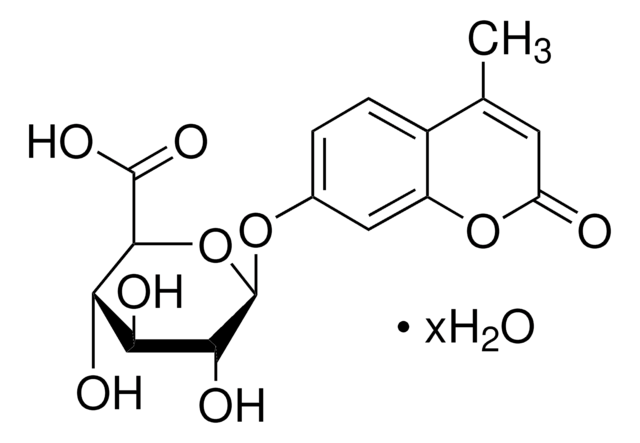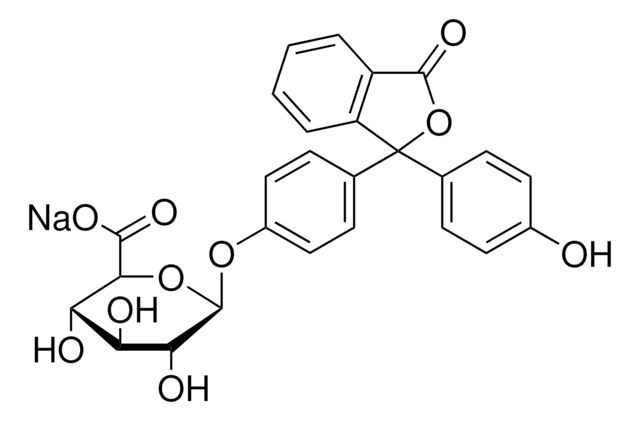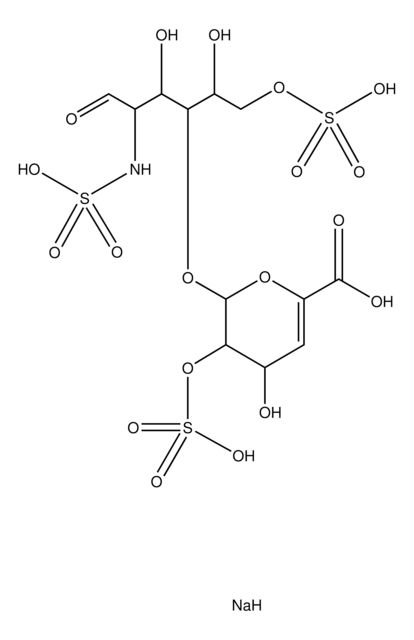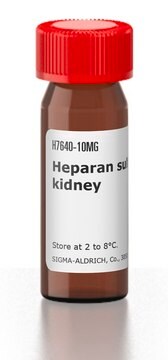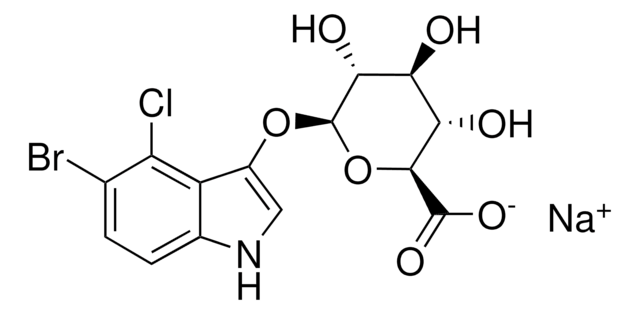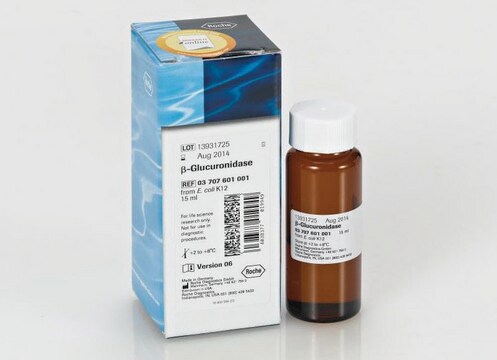P0501
Phenolphthalein β-D-glucuronide
β-glucuronidase substrate
Synonym(s):
Phenolphthalein β-D-glucosiduronic acid, Phenolphthalein glucuronic acid, Phenolphthalein mono-β-D-glucosiduronic acid
About This Item
Recommended Products
Assay
≥97% (TLC)
form
powder
solubility
H2O: soluble 100 mg/mL
storage temp.
−20°C
SMILES string
O[C@@H]1[C@@H](O)[C@@H](O[C@@H]([C@H]1O)C(O)=O)Oc2ccc(cc2)C3(OC(=O)c4ccccc34)c5ccc(O)cc5
InChI
1S/C26H22O10/c27-15-9-5-13(6-10-15)26(18-4-2-1-3-17(18)24(33)36-26)14-7-11-16(12-8-14)34-25-21(30)19(28)20(29)22(35-25)23(31)32/h1-12,19-22,25,27-30H,(H,31,32)/t19-,20-,21+,22-,25+,26?/m0/s1
InChI key
FXJYOZKDDSONLX-XADSOVDISA-N
Looking for similar products? Visit Product Comparison Guide
Related Categories
Application
Biochem/physiol Actions
Storage Class Code
11 - Combustible Solids
WGK
WGK 3
Flash Point(F)
Not applicable
Flash Point(C)
Not applicable
Personal Protective Equipment
Choose from one of the most recent versions:
Already Own This Product?
Find documentation for the products that you have recently purchased in the Document Library.
Customers Also Viewed
Articles
Today, diverse studies report the benefits of probiotics, such as inhibitory effects on pathogens, aid in the management or prevention of chronic intestinal inflammatory diseases or atopic syndromes, and support to the immune system. Potential beneficial applications abound, researchers continue to evaluate the effictiveness and clarify the mechanisms of action of probiotics.
Our team of scientists has experience in all areas of research including Life Science, Material Science, Chemical Synthesis, Chromatography, Analytical and many others.
Contact Technical Service
